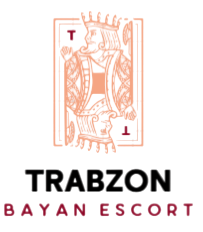The legal landscape of online gambling is a complex and evolving field, shaped by varying regulations and a focus on player rights. As online gambling gains popularity, countries worldwide grapple with creating frameworks that balance the interests of the industry, the government, and the consumers. In the United States, online gambling is regulated at both federal and state levels, resulting in a patchwork of laws that can be confusing for players. The Wire Act of 1961 initially targeted all forms of interstate wagering, but its applicability to online gambling has been a contentious issue. The Unlawful Internet Gambling Enforcement Act UIGEA of 2006 further complicated matters by prohibiting financial transactions related to online gambling. However, individual states have the authority to legalize and regulate online gambling within their borders. States like New Jersey, Pennsylvania, and Nevada have thriving online gambling markets, offering a variety of games, including poker, sports betting, and casino games.

Each state imposes its regulatory requirements to ensure fairness, protect minors, and prevent money laundering. In contrast, the European Union EU presents a more unified approach while allowing member states considerable autonomy. The EU recognizes the right of each member state to regulate online gambling, resulting in diverse regulatory frameworks across the continent. Countries like the United Kingdom have established robust regulatory bodies, such as the UK Gambling Commission, which enforces stringent licensing conditions and player protection measures. These measures include promoting responsible lucky8 free spins gambling, ensuring the integrity of games, and safeguarding personal and financial data. Other EU countries, such as Sweden and Denmark, have also implemented comprehensive regulatory frameworks to oversee their online gambling markets. Player rights in online gambling are a critical aspect of regulatory frameworks. Ensuring fair play, transparency, and protection against fraud are paramount.
Regulatory bodies often mandate that operators implement measures to prevent problem gambling, such as self-exclusion programs, dublinbet casino online deposit limits, and providing access to support services. Furthermore, protecting players’ personal and financial information through robust cybersecurity measures is essential in maintaining trust in the online gambling industry. The rise of cryptocurrency and blockchain technology is also influencing the legal landscape of online gambling. These technologies offer enhanced security and transparency, but they also pose regulatory challenges due to their anonymous nature and potential for facilitating money laundering. Regulators worldwide are examining how to integrate these innovations while maintaining oversight and protecting players. In conclusion, the legal landscape of online gambling is a dynamic and multifaceted field. Effective regulation balances the interests of operators, governments, and players, ensuring a safe and fair environment for online gambling. As the industry continues to grow and evolve, so too will the regulatory frameworks and player rights designed to protect and enhance the online gambling experience.
